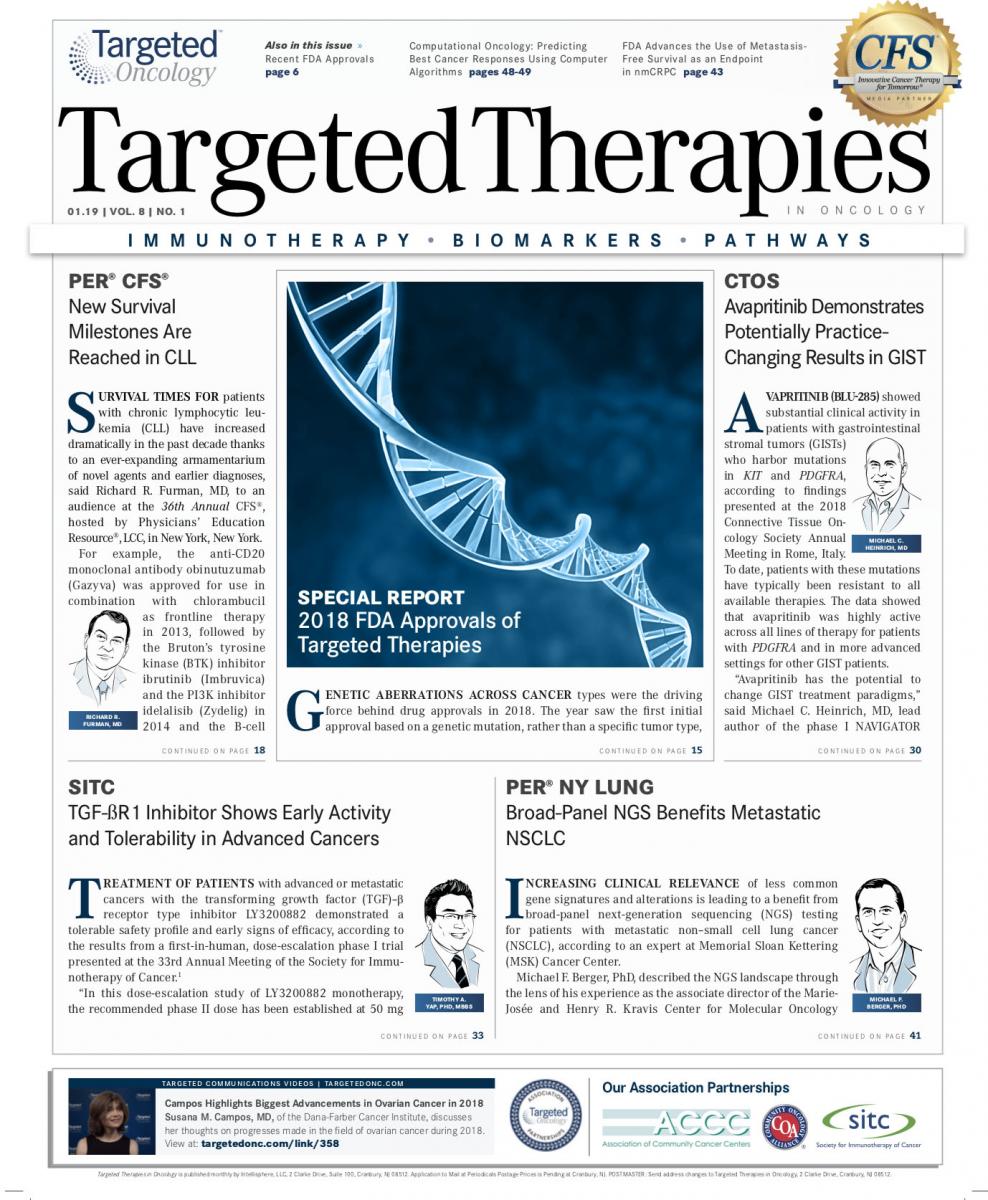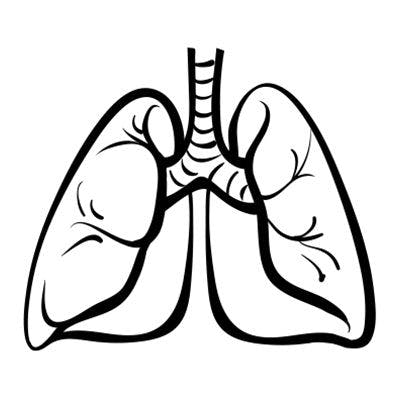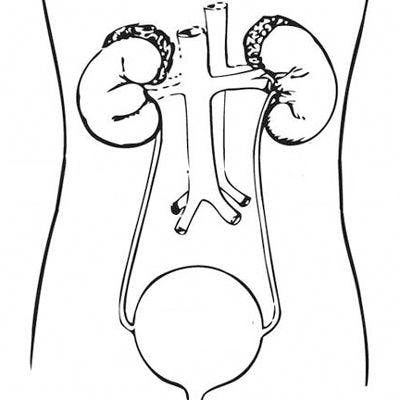Broad-Panel NGS Benefits Metastatic NSCLC
Increasing clinical relevance of less common gene signatures and alterations is leading to a benefit from broad-panel next-generation sequencing testing for patients with metastatic non–small cell lung cancer, according to an expert at Memorial Sloan Kettering Cancer Center.
Michael F. Berger, PhD
Increasing clinical relevance of less common gene signatures and alterations is leading to a benefit from broad-panel next-generation sequencing (NGS) testing for patients with metastatic nonsmall cell lung cancer (NSCLC), according to an expert at Memorial Sloan Kettering (MSK) Cancer Center.
Michael F. Berger, PhD, described the NGS landscape through the lens of his experience as the associate director of the Marie-Josée and Henry R. Kravis Center for Molecular Oncology during a presentation at the 13th Annual New York Lung Cancers Symposium hosted by Physicians’ Education Resource®, LLC. The center developed the MSK-IMPACT (integrated mutation profiling of actionable cancer targets) comprehensive panel for sequencing 468 cancer-associated genes.1The assay also evaluates tumor mutational burden (TMB) and mismatch repair deficiency (dMMR) or microsatellite instability (MSI).
“What might have been done in the context of an individual tumor type for a small core set of genes or mutations has now expanded to all different cancer-associated genes, knowing that mutations that may be more commonly observed in one cancer may also be less frequently observed in other cancers but also can provide informed treatment decisions for those patients,” said Berger.
As an example, he citedBRAFmutations, which have been observed in approximately 50% of melanomas and have prompted the development of dual pathwaytargeting agents, including the combination of dabrafenib (Tafinlar) and trametinib (Mekinist). In NSCLC, the same combination gained FDA approval in 2017 for patients with metastatic disease that harborsBRAFV600E mutations, which are found in 1% to 2% of lung adenocaricnomas.2
MSK now seeks to offer NGS testing to patients with meta- static cancer across all solid tumor types, particularly those with NSCLC, Berger said. He added that some patients with earlier-stage cancers may also undergo testing if they are treated through surgical oncology.
In NSCLC, such testing is growing increasingly relevant, notably because of novel therapies being developed for less prevalent gene fusions, Berger said in an interview withTargeted Therapies in Oncology. He cited the example ofNTRKfusions, which have been identified in less than 3% of NSCLC cases. Larotrectinib (Vitrakvi), a selective tyrosine receptor kinase (TRK) inhibitor, and entrectinib (RXDX-101), an oral pan-TRK inhibitor, are among the drugs being developed in this space.3
“The broad testing allows us to capture not just the common but also the rare mutations, and it also gives us information about more complex mutational signatures that are increasingly important for predicting response to immunotherapy,” Berger said.
TMB is being explored as a biomarker in NSCLC. The FDA is currently considering a supplemental biologics license application for the combination of nivolumab (Opdivo) plus low-dose ipilimumab (Yervoy) for the frontline treatment of patients with advanced NSCLC with TMB ≥10 mutations per megabase.
Although dMMR/MSI is “very rare in lung cancer,” Berger says patients with this signature may be candidates for pem- brolizumab (Keytruda), a PD-1 inhibitor that is approved for patients with unresectable or metastatic MSI-high or dMMR solid tumors who have progressed following prior treatment and who have no satisfactory alternative treatment options.
In describing the current landscape for NGS testing, Berger said there are 3 main test categories: hotspot panel, with amplicon capture of approximately 10 to 50 genes; cancer gene panel, with hybridization capture of about 100 to 500 genes; and whole exome sequencing, with hybridization capture of approximately 20,000 genes. At one end of the spectrum, hotspot panel testing is a lower-cost option that offers a fast turnaround, while at the other end, whole exome sequencing provides the greatest potential for discovery.
“There is a sweet spot in the middle, and this has been our approach,” he said, referring to MSK-IMPACT. “It is cheaper, more rapid, more economical than the more comprehensive approaches, and in some ways more clinically suited.”
At the same time, Berger said the choice of NGS strategy depends on clinical and practical factors. “There is really no one right approach. It depends on the disease, the lab, the resources available, the throughput in the laboratory, the turnaround time requirements, and cost consider- ations,” he said.
One advantage of the MSK-IMPACT test, he said, is that it analyzes DNA from tumor cells and a matched normal control sample for comparison; in lung cancer, blood is the source used in the normal test.
“When we set up this program and developed the test, it was really with the goal of identifying individual muta- tions that might elicit responses to particular targeted therapies,” Berger said. “But we can move beyond that, and that is enabled largely by the fact that we are sequencing both tumor and matched normal [samples].”
Thus far, more than 32,000 tumors have been sequenced with MSK-IMPACT, with approximately 200 additional tumors tested every week, Berger said. In 2017, the FDA approved the test, which is typically available only to patients treated at MSK, as an in vitro diagnostic.
Commercially available NGS tests approved by the FDA include the FoundationOne CDx assay, which tests for 324 genes; the Praxis Extended RAS Panel, which detects 56 mutations inRASfamily genes; and the Oncomine Dx Target Test, which analyzes 23 genes andROS1fusions. The FoundationOne and Oncomine tests are approved as companion diagnostics for NSCLC drugs that target specific mutations.
References:
- Evaluation of automatic class III designation for MSK-IMPACT (integrated mutation pro- filing of actionable cancer targets): decision summary. FDA website. accessdata.fda.gov/ cdrh_docs/reviews/DEN170058.pdf. Accessed December 7, 2018.
- Planchard D, Smit EF, Groen HJM, et al. Dabrafenib plus trametinib in patients with previ- ously untreated BRAFV600E-mutant metastatic non-small-cell lung cancer: an open-label, phase 2 trial. Lancet Oncol. 2017;18(10):1307-1316. doi: 10.1016/S1470-2045(17)30679-4.
- 3. Drilon A, De Braud FG, Siena S, et al. Entrectinib, an oral pan-Trk, ROS1, and ALK inhib- itor in TKI-naïve patients with advanced solid tumors harboring gene rearrangements: up- dated phase I results [AACR abstract CT007]. Cancer Res. 2016;76(suppl 14):CT007. doi: 10.1158/1538-7445.AM2016-CT007.












